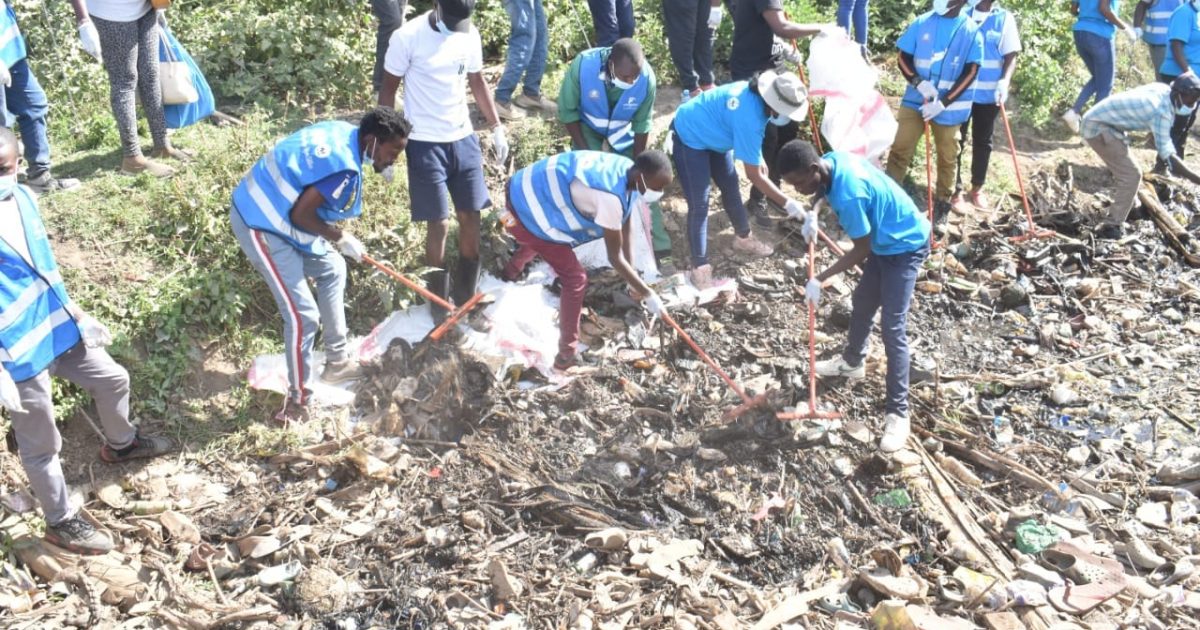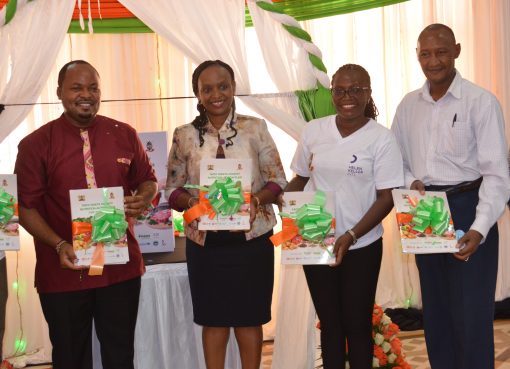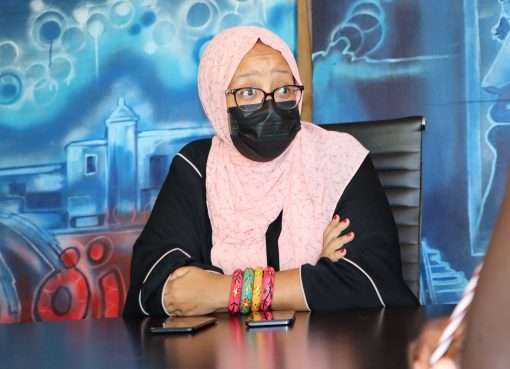Embracing the Alternative Justice System (AJS) will reduce the backlog of cases in Kenyan courts and unlock billions of shillings held by financial institutions due to protracted litigation tussles between various parties.
Nakuru Deputy Governor David Kones has said that with prison congestion, family wrangles, and business disputes escalating, Kenyans should resort to AJS whose positives included resolution in one or two sittings.
Mr Kones noted that disputes that had been dragging before judges for decades revolved around assets and finances, which do not help families but only escalate wrangles in the family.
The Deputy Governor was speaking at his office when he hosted the National Steering Committee on Implementation of Alternative Justice Systems Policy (NaSCI-AJS) of the Judiciary.
The committee, led by Court of Appeal Judge Professor Justice Joel Ngugi who chairs the NaSCI-AJS also discussed preparations for the forthcoming the 3rd Annual National Conference on Alternative Justice Systems in Kenya, which will be co-hosted by the Judiciary and the County Government.
Chief Justice Martha Koome is scheduled to open the Conference which will be held at Nyayo Garden and will run from June 11, 2024 to June 14, 2024.
The conference will bring together justice actors, practitioners, judicial officers, academics, policymakers, civil society actors, development partners, and all stakeholders in the access to justice ecosystem.
The AJS is a system that allows litigants in criminal and civil cases to resolve disputes outside the jurisdiction of the courts through healthy negotiations. The system is not only supposed to resolve cases but mend broken relationships, as parties in the cases are given chances to express themselves without restrictions.
Mr Kones said, unlike the court system, the AJS ensures all parties win and get what they want.
The AJS is an umbrella which comprises arbitration, mediation, consent agreements and blood money compensation, to resolve disputes.
The Deputy Governor noted that the AJS has eased the burden of dispute resolutions, adding that it gives chances to people who had claimed but were scared to go to court and resolve the issues.
Also present were County Legal Advisor Samuel Mungai, and Ms Jemimah Aluda, head of the NaSCI-AJS Secretariat among others.
Mr Kones noted that only 21 per cent of Kenyans have access to the formal justice system, and the AJS was beneficial to the remaining 79 per cent.
The Deputy Governor was disheartened at how succession cases and family disputes had dragged on in courts for decades while kin suffered.
“I hope those cases are resolved through AJS and are removed from courts immediately,” he said.
According to Justice Ngugi the conference will be fulfilling one of the major objectives of the committee to rally all sectors of Kenyan social, religious, judiciary, and cultural life to continuously and emphatically support the AJS mechanism and expand the pool of individuals and groups accessing justice in Kenya.
The AJS module he pointed out has a panel of at least three arbitrators who sit with opposing parties.
“The panelists include elders, prisons in charge, lawyers, religious leaders, and court officials among others. As of now, the panelists sit in the court’s jurisdiction,” noted Ngugi.
Those in the panel get the root cause of disputes by hearing opposing parties vent, disagree, and offer solutions themselves. The panel gives advice and recommendations only.
Professor Ngugi said the aim of the panel is not to decide on behalf of the parties but help them come up with their own solutions. He took note that in Nakuru alone, over 150 cases had been taken from courts and referred to the AJS since it was launched in 2021, with almost half of them resolved.
“A succession case that had been in court since 2006 was resolved in one sitting. Also, over 250 cases for sex workers and 400 disputes in the bodaboda sectors have been resolved,” said Ngugi at a previous event.
Unlike the court procedure that is strict, technical, complicated and rigid, Justice Ngugi said AJS has a vast way of resolving disputes. The AJS, he noted, ensures all parties win and reconcile after resolving disputes. The process is usually supposed to take six months.
In another case after 19 years in court, a Nakuru widow finally obtained the right to inherit part of her deceased father’s property. Ann Wanjiku had been fighting her eight siblings in court since 2003 until June 14, 2022, when Professor Ngugi, then High Court judge, referred the matter to the AJS.
After only one AJS session, the eight children of the late David Ndung’u agreed that Wanjiku, their sister, should inherit a significant share of their father’s property.
Furthermore, through the AJS, the Ethics and Anti-Corruption Commission (EACC) recovered a government housing property in Kericho worth Sh5 million through the Alternative Justice System (AJS).
According to South Rift Manager Ignatius Wekesa, the developers who realized they had fake title documents for the land agreed to surrender them to EACC. “We are in the process of rectifying the title deeds for the repossession of the land,” said Wekesa.
Professor Ngugi underscored the important role played by AJS saying it brings reconciliation, restoration and transformation into the society.
He said those fighting succession battles in court cannot develop their land and buildings worth billions of shillings.
Professor Ngugi noted that many victims of injustice had no recourse and that was dangerous and unfair.
“Anyone who has a grievance must have a recourse. We want to encourage people to use the AJS mechanism to resolve cases,” he said.
Professor Ngugi said it will help resolve 21 percent of cases before courts of law.




